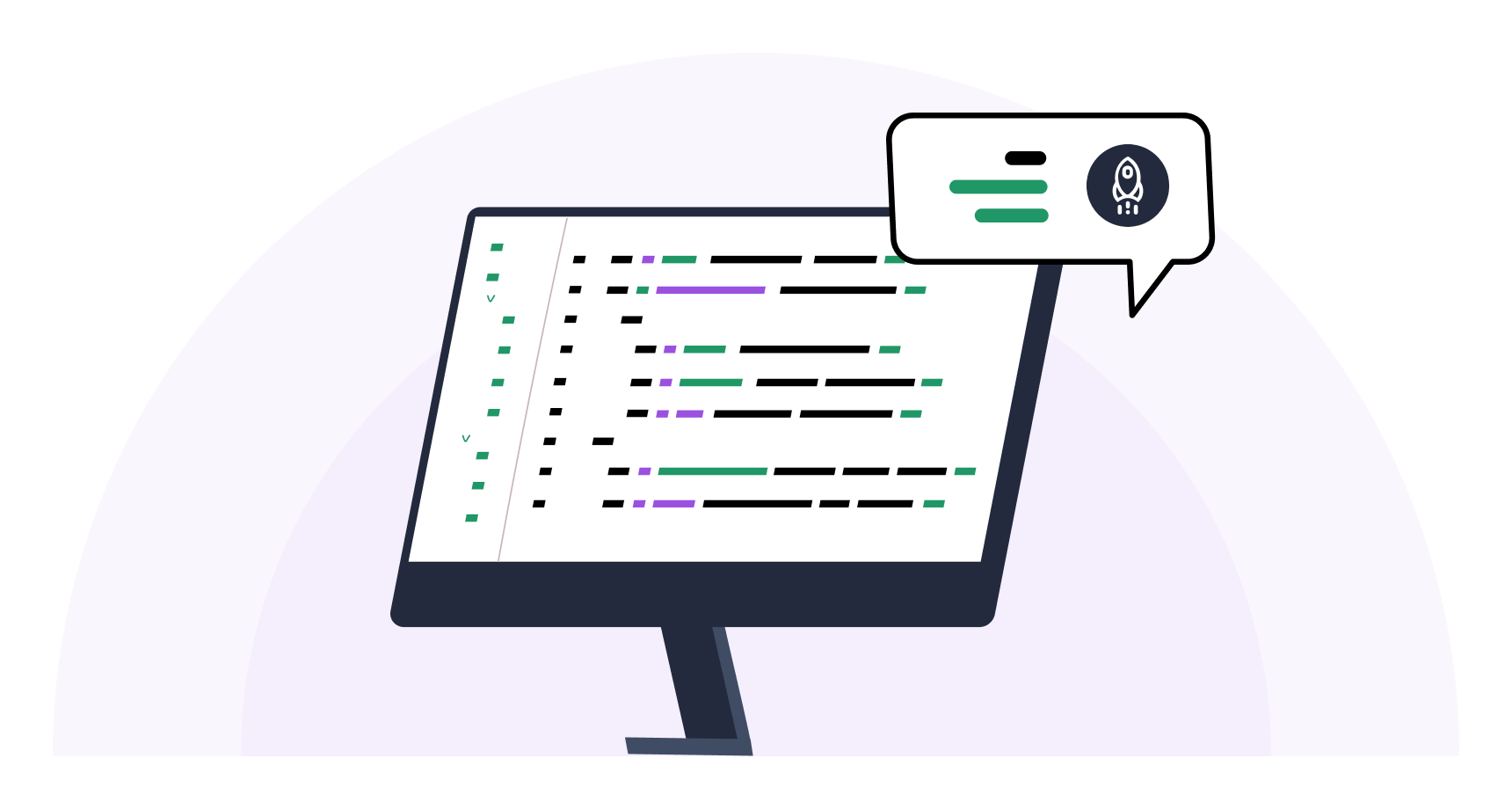

To answer this question properly, we interviewed 15 hiring managers in the data science field. This article will explain what certifications really mean to hiring managers and compare the best data science certifications available as of now.
Bonus content: We’ll also reveal the best-kept secrets among recruiters, including what they pay most attention to when weeding out resumes.
We talked to more than a dozen hiring managers and recruiters in the data science field about what they wanted to see on applicants’ résumés.
None of them mentioned certificates. Not one.
Here’s what we learned: certificates certainly won’t hurt your job search as long as they’re presented correctly. But they’re unlikely to help much either, at least on their own.
You might be wondering why these certificates aren’t worth the paper they’re printed on.
The issue is that there’s no universal standard and no universally accredited certification authority. Different websites, schools, and online learning platforms all issue their own certificates. That means these documents could mean anything–or they could mean nothing at all!
This is why employers tend not to give them more than a passing glance when qualifying candidates.
If certifications won’t help you get a job in data science, then what’s the point of earning one?
When it comes down to it, data scientist certifications aren’t completely useless. At Dataquest, we issue certificates when users complete any of our interactive data science courses. Why? Because it’s a great way for students to demonstrate that they’re actively engaged in learning new skills.
Recruiters do like to see that applicants are constantly trying to improve themselves. Listing data science certificates can help your job application in that way.
What’s most important to recruiters is whether you can actually do the job. And certificates aren’t proof of real skills.
The best way to demonstrate your skills is by completing projects and adding them to a portfolio.
Portfolios are like the holy grail of data science skills. That’s why hiring managers look at them first. Depending on what they see in your portfolio, they’ll either discard your application or send it to the next round of the hiring process.
Most of Dataquest’s courses contain guided projects you’ll complete to help you build your portfolio. Here are just a few of them:
You can sign up for free! Check out our courses here.
When considering which certification to get, don’t focus on “which data science certificate is best.” Instead, find the platform that best helps you learn the fundamental data science skills. That’s what’s going to help you land a job in the field.
Finding a data science program that offers a certificate is easy. A quick Google search will turn up dozens. The hard part is deciding whether the certificate is worth your time and money.
Let’s simplify this process. Here are five key things to consider when looking at a data science certification:
Remember, data science certificates are not worth the paper they’re printed on unless they teach you the skills employers are looking for. So that first bullet point is the most important. Think content, content, content!
Now, let’s look at some real-life examples to compare.

What you’ll learn: Dataquest offers five different career paths that cover the required skills to become a data analyst, business analyst, data scientist, and/or data engineer. The specific skills covered vary depending on which path you choose.
Topics include:
Cost: An annual Premium subscription of $399. Monthly subscriptions are also available.
Prerequisites: None. There is no application process (anyone can sign up and start learning today). No prior knowledge of applied statistics or programming is required.
Time commitment: Varies. Dataquest is a self-serve, interactive learning platform. Most learners find they’re able to meet their learning goals in six months, if studying fewer than ten hours per week. Learning goals can be accelerated with larger time commitments.
Reviews:
What you’ll learn: This course focuses on data analysis using Apache products: Hadoop, Hive, and Impala. It covers some SQL, but does not address Python or R programming.
Cost: The on-demand version costs $2,235 (180 days of access). Certification exams have an additional cost.
Prerequisites: Some prior knowledge of SQL and Linux command line is required.
Time commitment: Varies. Because this is a self-paced course, users have access for 180 days to complete 15 sections. Each section is estimated to take between 5-9 hours. The time commitment is between 75 and 135 hours. If you commit less than an hour each day, it might take you the entire 180 days. If you can devote 9 or more hours per day, it might take you a couple of weeks to complete.
Reviews: Third-party reviews for this program are difficult to find.
What you’ll learn: This Coursera-based program covers Python and SQL. This includes some machine learning skills with Python.
Cost:A Coursera P subscription, which is required. Based on Coursera’s 10-month completion estimate, the approximate total program cost is $399. A similar program is also available on EdX.
Prerequisites: None.
Time commitment: Varies. Coursera suggests that the average time to complete this certificate is ten months.
Reviews: Quantitative third-party reviews are difficult to find.
What you’ll learn: This EdX-based program covers R, some machine learning skills, and some statistics and workflow skills. It does not appear to include SQL.
Cost: $1332.90
Prerequisites: None.
Time commitment: One year and five months. Course progress doesn’t carry over from session to session, so it could require more time if you’re not able to complete a course within its course run.
Reviews: Quantitative third-party reviews are difficult to find.
What you’ll learn: Potentially nothing–this is simply a certification exam. However, test prep courses are available.
Cost: The certification test costs $695 and includes limited prep materials. Dedicated prep courses are available for an additional cost.
Prerequisites: An application is required to take the certification exam. Since no course is included, you’ll need to learn the required information on your own or sign up for a course separately.
Time commitment: The exam itself is relatively short. The dedicated prep courses take 1-2 months, depending on options. They are not required for taking the exam.
Reviews: Quantitative third-party reviews are difficult to find. Here are some independent opinions about the certification:
What you’ll learn: This course covers SQL data analysis skills with a focus on using BigQuery and Google Cloud’s data analysis tool.
Cost: A Coursera subscription, which is required, costs $39/month. Coursera estimates that most students will need two months to complete the program.
Prerequisites: The course page says: “We recommend participants have some proficiency with ANSI SQL.” It’s not clear what level of SQL proficiency is required.
Time commitment: Coursera estimates that most students will need two months to complete the program, but students can work at their own pace. However, courses do begin on prescribed dates.
Reviews: Quantitative third-party reviews are difficult to find, but:

Before you start looking for data science courses and certifications, there’s something you need to be aware of.
While some programs like Dataquest, Coursera, and Udemy do not require any particular background or industry knowledge, many others do have concrete prerequisites.
Our analysis indicates a high demand for skills in AI implementation, machine learning model deployment, and data engineering. In response to these advancements, new certifications have emerged, focusing on areas like AI ethics, deep learning, and big data analytics. These certifications are gaining traction in the job market as they align with the evolving demands of the industry.
While traditional certificates may have varying significance, those that keep pace with current industry trends, like AI and machine learning, hold more weight in the job market. When selecting a data science certification, consider how well it incorporates recent advancements in AI and data analytics.
Dataquest's approach to incorporating AI advancements into its curriculum, particularly through its AI chatbot, serves as an excellent example of how modern data science certifications can align with industry trends. This integration demonstrates a forward-thinking approach in teaching and learning, making the program more relevant and valuable in the current job market.
Before you start looking for data science courses and certifications, there’s something you need to be aware of.
While some programs like Dataquest, Coursera, and Udemy do not require any particular background or industry knowledge, many others do have concrete prerequisites.
For example, DASCA’s Senior Data Scientist Certification tracks require at least a Bachelor’s degree (some tracks require a Master’s degree). That’s in addition to a minimum of 3-5 years of professional data-related experience!
Some programs, particularly offline bootcamps, also require specific qualifications or have extensive application processes. Translation? You won’t be able to jump in right away and begin learning. You’ll need to factor in time costs and application fees for these programs when making your choice.
If you’re considering a data science certificate from a university, think again.
Many of the expensive certification programs offered online by brand-name schools (and even Ivy-League schools) are not very meaningful to potential employers.
A number of these programs are not even administered by the schools themselves. Instead, they’re run by for-profit, third-party firms called “Online Program Managers”.
What’s worse is that data science recruiters know this. Yes, employers are keenly aware that a Harvard-affiliated certificate from EdX and a Harvard University degree are two very different things.
Plus, most data science hiring managers will not have time to research every data science certification they see on a résumé. Most résumés are only given about 30 seconds of review time. So even if your university-based certificate is actually worth something, recruiters likely won’t notice it.
University certificates tend to be expensive. Consider the cost of some of the most popular options out there:

We’ve established that recruiters and hiring managers in data science are looking for real-world skills, not necessarily certifications. So what’s the best way to get the skills you need?
Hands-down, the best way to acquire compelling data science skills is by digging in and getting your hands dirty with actual data.
Choose a data science course that lets you complete projects as you learn. Then, showcase your know-how with digital portfolios. That way, employers can see what skills you’ve mastered when considering your application.
At Dataquest, our courses are interactive and project-based. They’re designed so that students can immediately apply their learning and document their new skills to get the attention of recruiters. Sign up for free today, and launch your career in the growing field of data science!
![]()
About the author
Dataquest teaches through challenging exercises and projects instead of video lectures. It's the most effective way to learn the skills you need to build your data career.